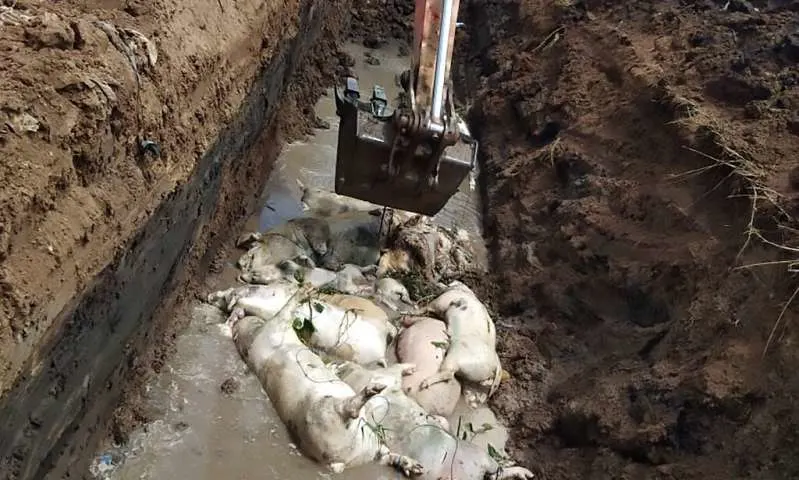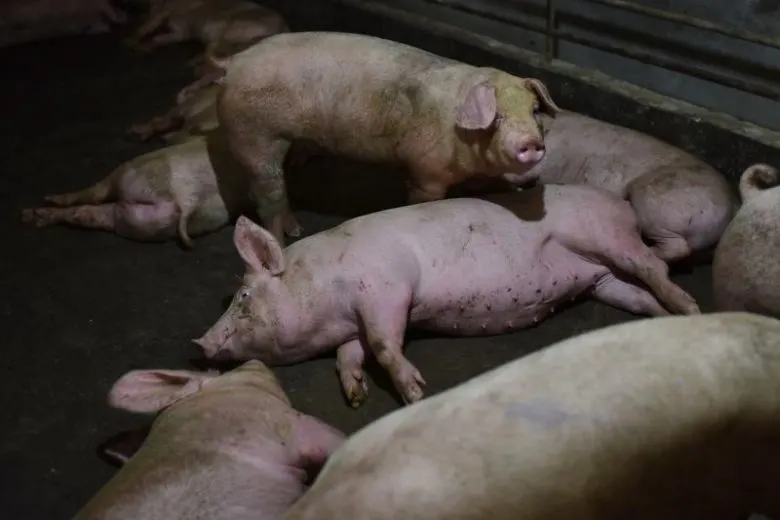888 pigs have been suddenly died in Bali and are suspected of having the African Swine Flu.
According to the Bali Provincial Animal Husbandry and Animal Health Service, the tourists hot spots of Denpasar, Badung and Tabanan have been the hardest hit by suspected Swine flu deaths.

The Department of Agriculture and Food Crops, and the Office of Animal Husbandry of the Province of Bali, are still waiting for the results of lab tests, that are being completed be the Denpasar Veterinary Center.
Residents and local breeders are being advised by health officials to disinfect, and not litter the pig carcasses, to prevent the spread of the virus.
Head of the Agriculture and Food Service Office of Badung Regency I Wayan Wijana said that after holding a meeting with pig farmers and visiting breeders Thursday that “people in Badung, especially farmers, are asked to apply bio security strictly.”
According to Wijana who was accompanied by the Head of the Bali Provincial Health Office, the pigs started dying in early January and they immediately deployed officers to conduct monitoring and data collection as well as implementing communication with local pig farmers. This is done by officers to help inform the public, especially breeders, about the dangers of an outbreak of a pig disease and ways to prevent the spread of the disease.
“Laboratory results of samples sent to the Veterinary Center in Denpasar must still be confirmed, which has the authority to determine this type of disease, so we urge the public to remain calm because the disease is not transmitted to humans but it does spread very quickly to pigs.”
Head of the Agriculture and Food Service Office
Badung Regency – I Wayan Wijana

According to the South Kuta Sub-district Head, the only way to prevent the spread of this epidemic is for farmers to apply strcit bio-security by keeping cages clean, spraying with disinfectants. Farmers are also being asked to tightly restrict the traffic of people, goods, materials and animals that can easily transfer viruses to the pigs. This includes not using food waste from hotels or restaurants because it’s suspected to be the trigger for the emergence of the outbreak. All dead pigs are to be buried or burned.
According to the Head of Animal Health and Veterinary Public Health, Nata Kesuma, the deaths of hundreds of pigs in Bali makes people uneasy because of the impact on economic and psychological losses.
Hundreds of dead pigs showed the same clinical symptoms of high fever, reddening of the ears and other body parts, vomiting and diarrhea which all resulted in death. To find the cause of deaths, the Bali Agriculture and Food Security Service has taken research samples in several locations to be examined in the laboratory. This laboratory test will determine if the pigs died from the African swine flu.

The Animal Health Livestock Service Office, and the Karangasem Regency Agriculture Office in Bali have sprayed disinfectants on pigs and their cages, in Kikian Hamlet, Abang Village, Abang District, Karangasem Regency, Bali.
The Department of Agriculture, the Office of Animal Husbandry and Animal Health of Karangasem, appealed to farmers, and pork traders, to keep cleaning cages and not take seeds from the four areas affected by ASF
What is the African Swine Flu and can humans catch it?
African swine fever virus is a contagious viral disease impacting only pigs, not people, so it is not a public health threat or food safety concern.
Although it’s harmless to humans, the disease can kill pigs within a few days, and the fatality rate can be up to 100%, according to the World Organisation for Animal Health (OIE).
Indonesia is the latest Asian country to face an outbreak of African swine flu. Over 30,000 pigs have already died from the disease in North Sumatra.
For the latest Bali news, Debate & Gossip join our Facebook Community

Discover more from The Bali Sun
Subscribe to get the latest posts sent to your email.
